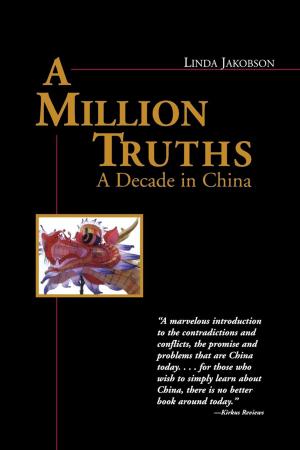Growing (Up) at 37
Nonfiction, Religion & Spirituality, New Age, New Thought, Biography & Memoir, Political| Author: | Jerry Rubin | ISBN: | 9781590772928 |
| Publisher: | M. Evans & Company | Publication: | March 3, 2014 |
| Imprint: | M. Evans & Company | Language: | English |
| Author: | Jerry Rubin |
| ISBN: | 9781590772928 |
| Publisher: | M. Evans & Company |
| Publication: | March 3, 2014 |
| Imprint: | M. Evans & Company |
| Language: | English |
Jerry Rubin, co-founder of the Yippie movement and a member of the Chicago Seven, traces his personal odyssey from radical activist of the 60’s to a practitioner in the growth potential movements of the 70’s—'Working to change in me the things I opposed externally in the streets.'
Finding himself categorized by the press as ‘erstwhile’ and ‘aging’ at thirty-four and oppressed by his own lack of inner peace, Jerry Rubin turned his energy inward, seeking a self redefinition through various forms of New Consciousness.
Growing (Up) at Thirty-Seven is a very personal and candid account of his experiences with est, rolfing, acupuncture and other forms of therapy—a unique journey to self awareness in which he tells of the person he was and the person he has become; how the originator of the slogan ‘Kill Your Parents!’ finally learned to love his own parents; and how his new personal philosophy relates to his political views.
This is a sensitive psychological self-evaluation—a male confessional that lays bare Jerry Rubin’s struggle to find himself as a man in the aftermath of the aborted Youth Revolution.
Jerry Rubin, co-founder of the Yippie movement and a member of the Chicago Seven, traces his personal odyssey from radical activist of the 60’s to a practitioner in the growth potential movements of the 70’s—'Working to change in me the things I opposed externally in the streets.'
Finding himself categorized by the press as ‘erstwhile’ and ‘aging’ at thirty-four and oppressed by his own lack of inner peace, Jerry Rubin turned his energy inward, seeking a self redefinition through various forms of New Consciousness.
Growing (Up) at Thirty-Seven is a very personal and candid account of his experiences with est, rolfing, acupuncture and other forms of therapy—a unique journey to self awareness in which he tells of the person he was and the person he has become; how the originator of the slogan ‘Kill Your Parents!’ finally learned to love his own parents; and how his new personal philosophy relates to his political views.
This is a sensitive psychological self-evaluation—a male confessional that lays bare Jerry Rubin’s struggle to find himself as a man in the aftermath of the aborted Youth Revolution.















